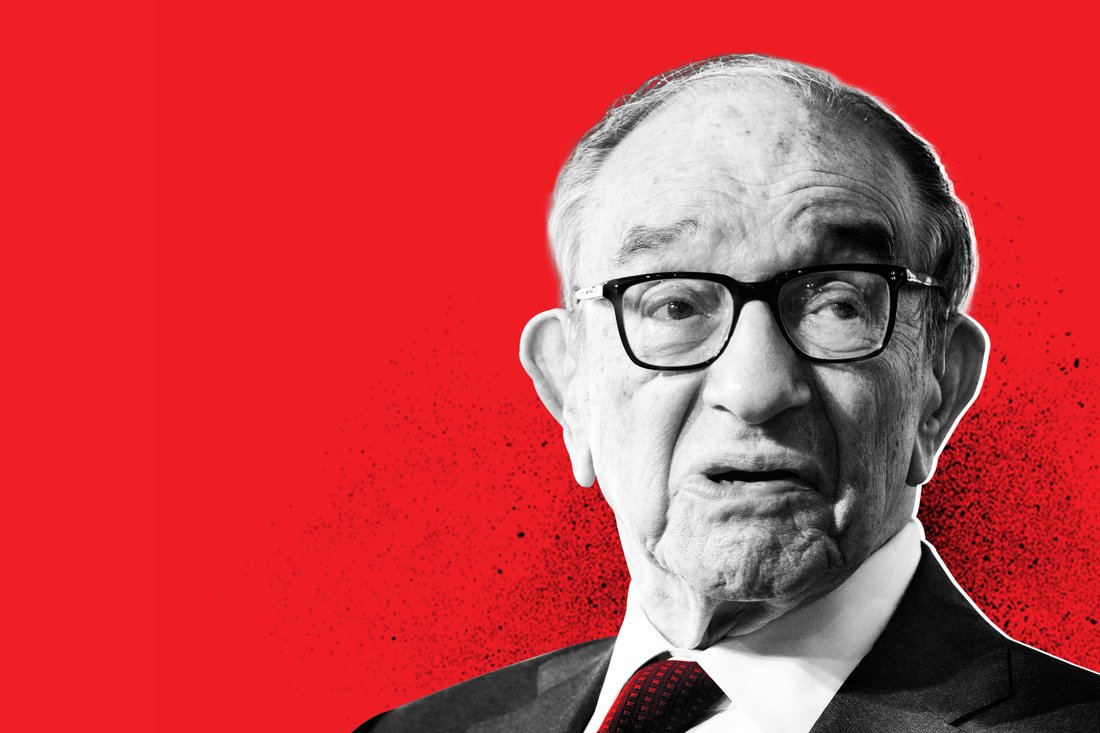下一次危機(jī)即將到來,它長什么樣?
|
十年前的那個周末,全球金融界天翻地覆。十年來,最重要的教訓(xùn)不在于什么變了,盡管變化巨大影響深遠(yuǎn),但更重要的是什么沒變。上次危機(jī)的主要原因是人類的自欺欺人和不理性,這仍將成為引發(fā)下次危機(jī)的主要原因。是不是十分沮喪,難以接受?想想好的方面,這至少告訴了我們要警惕什么。 2008年9月15日,天尚未破曉,雷曼兄弟宣布破產(chǎn),這并非史上第一次也不是最嚴(yán)重的一次金融危機(jī),但卻是最駭人的一次,因?yàn)槿藗冸y以想象這家規(guī)模龐大、聲譽(yù)良好排名領(lǐng)先的投行界巨頭也會破產(chǎn)。雷曼的破產(chǎn)讓人們不再相信原本篤定的想法,為后續(xù)一系列讓人暈頭撞向的變化揭開序幕,現(xiàn)在其中許多變化已經(jīng)融入我們的日常生活。 但是人們發(fā)現(xiàn),原來自己篤定的想法本身就是建立在毫無根據(jù)的基礎(chǔ)上。眾所周知,美國的房屋擁有率長期以來持續(xù)增長,這也是美國立國之本的一部分。人們對此毫不懷疑,因此助漲了21世紀(jì)初寬松信貸環(huán)境下的購房狂潮,熱潮的出現(xiàn)源于人們堅(jiān)信當(dāng)時史無前例瘋狂上漲的房價會永遠(yuǎn)高企。包括雷曼在內(nèi)的大型機(jī)構(gòu)投資者看好這種基于公眾信心的漲價潮,把賭注押在不可靠的次級貸款上,最終落得破產(chǎn),經(jīng)濟(jì)也因此遭受重創(chuàng)。(至于房屋持有率,40年的上漲從此中斷,一路猛跌,而且毫無恢復(fù)跡象。) |
TEN YEARS AFTER the weekend that upended the financial world, its most important lessons lie not in what has changed, vast and profound though that is, but in what hasn’t changed. The main causes of the last crisis—human self-delusion and irrationality—will be the main causes of the next one. If that seems unbearably depressing, cheer up: It tells us what to watch out for. Lehman Brothers’ bankruptcy announcement in the predawn darkness of Sept. 15, 2008, wasn’t the first or worst event of the financial crisis, but it was the most frightening because it was unthinkable, given the investment bank’s size and exalted stature. It unmoored us from our certainties and set the stage for other disorienting changes, many of which are now embedded in our daily lives. But those same certainties were built on foundations that turned out to be unfounded. We all knew that U.S. homeownership rises over the long term; that’s part of what America is about. That unshakable confidence helped fuel the easy-credit home-buying frenzy of the early 2000s, a frenzy driven by the belief that an unprecedented spike in property prices would last indefinitely. Big institutional investors—including Lehman—bought into the faith-based rally, betting on the kinds of shaky subprime loans that eventually brought them down and cratered the economy. (As for the homeownership rate, it plunged, erasing 40 years of increase, and is nowhere near recovering.) |

|
如果說妄想型樂觀是過往大規(guī)模金融災(zāi)害的罪魁禍?zhǔn)祝胄捅^導(dǎo)致多數(shù)美國人無法康復(fù)。 蓋洛普的數(shù)據(jù)表明,人們的股票持有率甚至低于2000至2001年互聯(lián)網(wǎng)泡沫破滅后的數(shù)據(jù)。我們大多數(shù)人對和金融有關(guān)的一切深感恐懼,表現(xiàn)反常。Betterment robo咨詢公司一項(xiàng)新調(diào)查表明,48%的受訪者認(rèn)為股市過去十年沒有上漲,其中還有18%的人認(rèn)為股市下跌了,簡直令人難以置信。48%意味著接近一半的美國成年人,他們只需花10秒鐘上網(wǎng)查一下,就能知道雷曼兄弟破產(chǎn)后,股市已經(jīng)上漲了140%。但他們就是不看。他們就像是不敢打開美國國稅局來信的那些人。只是想一想,就渾身發(fā)抖。 這種自毀行為恰恰提醒我們,在這場危機(jī)中我們再次認(rèn)識到了:大部分人的行為都不理性。華爾街上太多人相信當(dāng)時喧囂的市場反映的是人們根據(jù)古典微觀經(jīng)濟(jì)學(xué)進(jìn)行了機(jī)器式精密計(jì)算的結(jié)果。前美聯(lián)儲主席艾倫·格林斯潘40多年來都是一位超理性自由意志者,卻向國會委員會承認(rèn)發(fā)現(xiàn)自己“定義世界如何運(yùn)轉(zhuǎn)的重要功能結(jié)構(gòu)”模型失效時,他“深感震驚”。他絕非一個人。 破壞能力最強(qiáng)的不理性是固執(zhí)卻又錯誤地認(rèn)為估值的基本原則不再適用,認(rèn)為這次不一樣。這句話成為經(jīng)濟(jì)學(xué)家卡門·萊因哈特和肯尼斯·羅格夫合著的暢銷書書名,告訴人們正是這種信念催生了幾個世紀(jì)以來的多次金融危機(jī)。行為金融學(xué)認(rèn)為,過度自信、過度推斷、從小樣本得出大結(jié)論等深層錯誤強(qiáng)化了人們的誤判行為。 沒人知道下次危機(jī)的導(dǎo)火索是什么,但我們可以肯定,下次危機(jī)一定是基于同樣的錯誤。不要指望你的老板、銀行、保險公司或者監(jiān)管者保護(hù)你。但你可以保護(hù)自己,因?yàn)槟阋呀?jīng)知道怎樣發(fā)現(xiàn)問題。具體如下: · 經(jīng)常問問自己,哪些市場的價格只有在相信估值的基本原則不再適用時才顯得合情合理,這樣可以幫助你識別熱點(diǎn)…… · 多聽聽和主流意見相悖、過去表現(xiàn)良好、可靠的非主流思想家的意見,比如上次危機(jī)中基金經(jīng)理杰瑞米·格蘭瑟姆、經(jīng)濟(jì)學(xué)家羅伯特·席勒和魯里埃爾·魯比尼。你無法確定他們就是對的,但因?yàn)樗麄兛赡苁菍Φ模憧梢蕴崆白龊脺?zhǔn)備。這就意味著…… · 不要預(yù)測未來——未來無法預(yù)測。相反,設(shè)想一下未來每一種可能性出現(xiàn)時的場景并制定計(jì)劃。不要擔(dān)心你的大部分計(jì)劃派不上用場;未雨綢繆要好過亡羊補(bǔ)牢。 10年前的危機(jī)爆發(fā)告訴我們哪怕在世界型的金融災(zāi)難中,并非人人都受到同樣的沖擊。對沖基金經(jīng)理約翰·鮑爾森因?yàn)樽隹沾钨J賺了幾十億美元,因?yàn)榇钨J本身就不符合常規(guī)的估值法則。你可能做不到這么成功,但總有些人能夠安然度過下次危機(jī)。理性決斷,你也能成為其中一員。(財(cái)富中文網(wǎng)) 本文另一版本刊于2018年10月1日《財(cái)富》雜志,題目是《如何識別下一次金融危機(jī)》。 譯者:Ty? |
If delusional optimism led to widespread financial harm, delusional pessimism has kept many Americans from healing. We’re still less likely to own stocks than we were even after the dotcom meltdown of 2000–01, says the Gallup research firm. More of us are truly terrified of anything associated with finance, which makes us behave bizarrely. A new survey by the Betterment robo-advisory firm finds, incredibly, that 48% of respondents think the stock market hasn’t gone up in the past decade, including 18% who think it has gone down. That’s half of American adults, and it would take them 10 seconds online to learn that stocks are up 140% since Lehman failed. But they don’t look. They’re like the person who can’t open the letter from the IRS. The very thought makes them quiver. Such self-destructive behavior reminds us of what we relearned in the crisis: Most people don’t behave rationally. Too many on Wall Street believed the madhouse markets reflected people making the machinelike calculations of classical microeconomics. Former Federal Reserve chairman Alan Greenspan, a hyperrational libertarian for 40-plus years, confessed before a congressional committee he was “shocked” that his model of “the critical functioning structure that defines how the world works” didn’t work. He wasn’t alone. The most damaging irrationality was a dogged but mistaken belief that fundamental rules of valuation no longer applied—that this time is different. The phrase became the title of a bestseller by economists Carmen Reinhart and Kenneth Rogoff, showing that such a belief has fueled financial disasters for centuries. Deep-rooted errors identified by behavioral finance— overconfidence, over-extrapolation, drawing big conclusions from small samples—reinforced the misjudgment. No one knows what will trigger the next crisis, but we know for sure it will be built on the same kind of mistakes. Don’t count on employers, banks, insurers, or regulators to protect you. But you can shield yourself because you already know how to spot trouble. Specifically: · Ask yourself regularly which markets look reasonably priced only if you believe that fundamental rules of valuation no longer apply. To help you identify such hotspots… · Listen to the responsible fringe—thinkers with strong records who are contradicting the mainstream view. Last time they included fund manager Jeremy Grantham and economists Robert Shiller and Nouriel Roubini. You can’t know if they’re right, but you can prepare for the possibility that they might be. That means… · Don’t predict the future—you can’t. Instead, envision scenarios and plan for each one. Don’t worry that most of your plans will be wasted; it’s better to be prepared for events that don’t happen than unprepared for those that do. The crisis that erupted 10 years ago reminded us that even in a worldwide financial calamity, not everyone suffers equally. Hedge fund manager John Paulson made billions betting against subprime mortgages, a business that had abandoned usual valuation rules. You may not do so well, but we know that some people will come through the next crisis just fine. Resolve, rationally, to be among them. A version of this article appears in the October 1, 2018 issue of Fortune with the headline “How to Spot the Next Financial Crisis.” |













